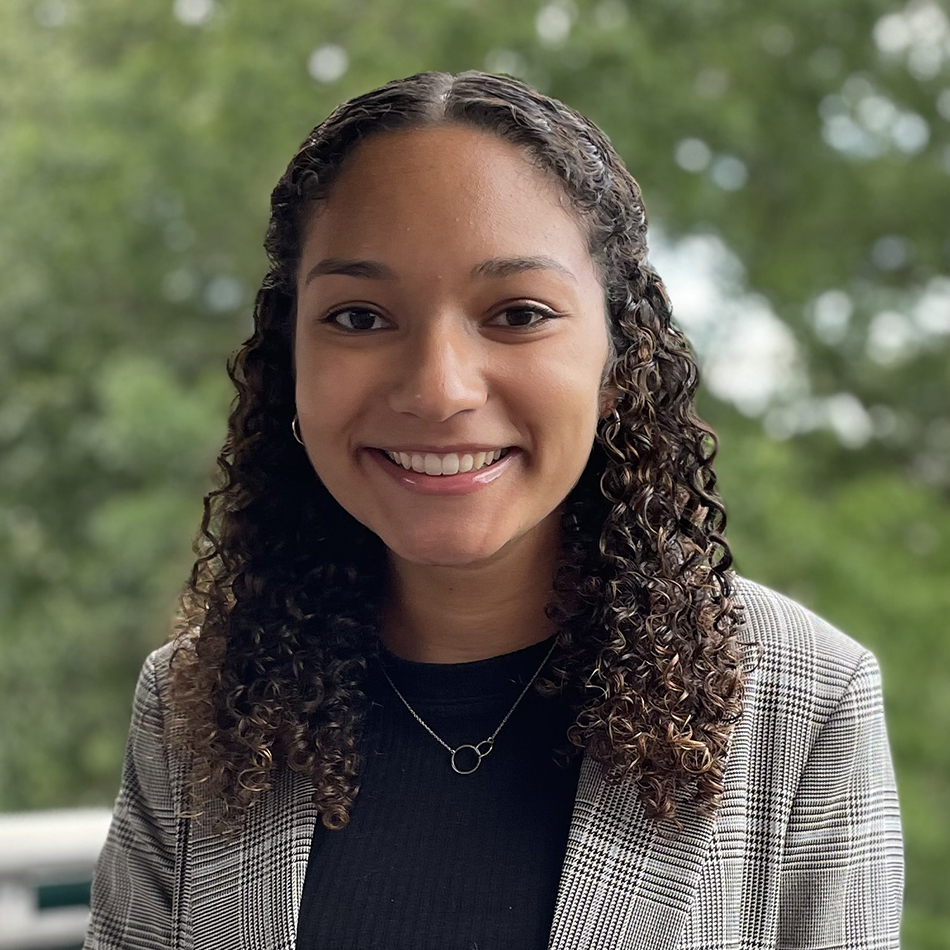Samantha Hutchinson is a doctoral student in School Psychology working under Dr. Erin Dowdy. She graduated from Skidmore College with a B.A. in Psychology in 2020, where she evaluated broadly how young children learn about the world and assessed how adult beliefs about early cognitive development vary across experience and expertise.
As a Program Assistant at the Child Mind Institute, she worked with clinicians across disciplines, delivering evidence-based small group interventions for students on behavior and emotion regulation. As a Research Coordinator at Boston College she initiated collaboration between the Psychology & Neuroscience department and the Education department to investigate the basic principles of learning and memory and their application in educational settings. Her current research interests include school-based interventions to support students’ academic and social-emotional development as well as parent and community involvement. Currently, she is a Project TEAMS scholar at UCSB, where she is excited to continue to collaborate across departments to research and implement evidence-based interventions to support diverse students’ social, emotional, and mental health needs.
GGSE: Where did your interest in school psychology begin?
Hutchinson: My interest in school psychology began before I really even knew what school psychology was. Throughout high school, I worked with children in various capacities including babysitting, tutoring, and being a teacher’s assistant, and I was always fascinated by young children’s range of cognitive and emotional abilities. As an undergraduate at Skidmore College, I majored in psychology where I studied early childhood development and became increasingly interested in mental health care.
Graduating college in 2020 in the midst of the COVID-19 pandemic, access to mental health care became increasingly difficult, especially for culturally, linguistically, and racially diverse youth. I worked remotely at the Child Mind Institute in New York where I aided clinicians in virtual information talks and evidence-based small group interventions for children, families, and educators from diverse backgrounds. This was my first direct experience working alongside school psychologists, and once I began to understand their role, I knew that this was the career path for me. School psychology provides the perfect intersection between my interests in child development and education, as well as addressing mental health needs in school settings.
GGSE: I saw you are a part of Project TEAMS. What excites you most about Project TEAMS and the work you’re doing?
Hutchinson: As a Project TEAMS scholar, I am so excited to collaborate across departments to research and implement evidence-based interventions to support diverse students’ social, emotional, and mental health needs. In my work at Boston College as a Research Coordinator, I initiated collaboration between the Psychology & Neuroscience department and the Education department to investigate the basic principles of learning and memory and their application in educational settings. This partnership was so rewarding, and I am looking forward to learning from my colleagues in the School Psychology and Special Education department at UCSB as well as those in the Special Education department at Boston University.
GGSE: What type of work do you hope to do in the future?
Hutchinson: In the future, I plan to continue working with school and community partners to enhance mental health services for diverse youth through both evidence-based practices and techniques typically considered to be “alternative methods” such as art therapy. There is rich literature supporting art-based approaches grounded in evidence-based interventions that are successful in reducing problematic behaviors and expressing emotions, among many other benefits. However, in my work I hope to further enhance this connection to move these alternative methods into more mainstream approaches. My hope is that these potentially low-cost interventions for schools and communities could increase access to mental health services. I look forward to exploring the intersection between mental health, social emotional learning, and art therapy techniques through a school psychology lens to support children, families, and educators.
GGSE: What do you most enjoy doing when you have time for yourself?
Hutchinson: In my free time I enjoy art, walking on the beach, and cooking and baking for my family and friends.
